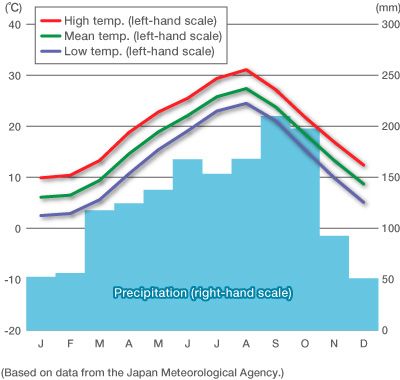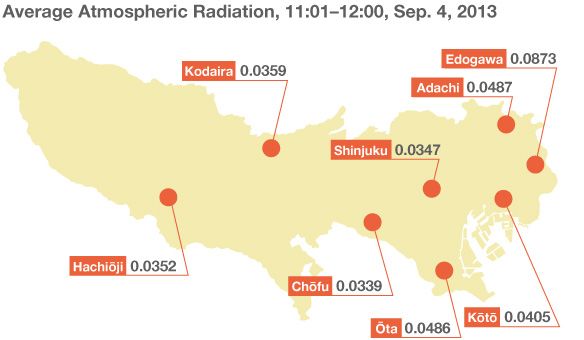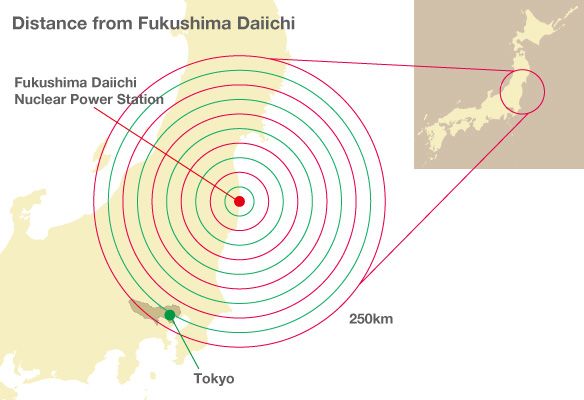Tokyo Facts: Details on the 2020 Olympics Host
Society Lifestyle- English
- 日本語
- 简体字
- 繁體字
- Français
- Español
- العربية
- Русский
Tokyo: An Overview
The capital of Japan, Tokyo is the country’s political and industrial center. Though it is often described as a city, Tokyo is actually a metropolitan region consisting of 23 central cities, often called “special wards”—the former wards of the city of Tokyo, which existed as a single municipality until 1943—and an additional 39 municipalities in the western Tama district and the islands stretching south far into the Pacific.
The city was known as Edo until 1868, when it was renamed Tokyo, meaning “eastern capital,” in contrast to the previous capital of Kyoto to the west. Before then, it was perhaps the world’s largest city, home to more than a million residents in the mid-eighteenth century. In 1962, two years before Tokyo hosted the Summer Olympics, the metropolitan district saw its population clear the 10 million mark.
The Tokyo Metropolitan Government operates out of a high-rise complex completed in 1991 in the business and entertainment district of Shinjuku. Inside the JR Yamanote Line, a loop train circling the central city district, are Nagatachō, site of the National Diet and the Kantei (the prime minister’s official residence), and Kasumigaseki, home to the nation’s central government bureaucracy. The Imperial Palace sits at the heart of the city on the site of Edo Castle.
In 2012 Tokyo’s nominal GDP stood at some ¥85 trillion, enough to rank it fourteenth on the list of national economies. The metropolis is more than just urban sprawl, though: the heavily forested mountains in its west include the 2,017-meter Mt. Kumotori, Tokyo’s highest peak, and its southern islands include the Ogasawara Islands, which were inscribed on the UNESCO World Heritage List in 2011 to become Japan’s fourth Natural Heritage Site.
The Tokyo Metropolis
| Population | 13,282,271 (as of Aug. 1, 2013) |
| Land area | 2,188.67 km2 |
| Governor | Inose Naoki |
| Metropolitan flower | Yoshino cherry (Prunus × yedoensis) |
| Metropolitan tree | Ginkgo (Ginkgo biloba) |
| Metropolitan bird | Black-headed gull (Larus ridibundus) |
| Average Temperature and Precipitation Average annual temperature, 1981–2010: 16.3ºC (61.3 ºF) Average annual precipitation, 1981–2010: 1,528.8 mm (60.18 inch) |  |
The Radiation Question
One concern that many visitors to Tokyo have is the presence of radiation from the accident at the Fukushima Daiichi Nuclear Power Station, triggered by the earthquake and tsunami on March 11, 2011. The Tokyo Metropolitan Institute of Public Health takes regular readings and publishes radiation levels in the atmosphere, tap water, and atmospheric fallout (including rain and particulate matter). Recent readings for various areas of Tokyo have been below 1 millisievert per year, the standard level of background radiation defined as acceptable for the metropolis.


Asia’s First Two-Time Olympic Host
Tokyo is no stranger to the Olympic Games, having hosted them in 1964. (The city was previously slated to host the 1940 Summer Games, but this plan fell through when they were cancelled due to the outbreak of World War II.) In preparation for the 1964 games, the nation built major new transportation infrastructure, including the Tōkaidō Shinkansen (bullet train) from Tokyo to Osaka, the Tokyo Monorail, and the Metropolitan Expressway network.
The Olympics were a major boost to the consumer economy as well, sparking a boom in television purchases that brought sets to 87.8% of households. Japan’s successful bid for and hosting of the 1964 Olympic Games was also a factor in its admission to the Organization for Economic Cooperation and Development.The 1964 Games By the Numbers
| Games of the XVIII Olympiad | Oct. 10 to Oct. 24, 1964 |
| Participating countries | 94 |
| Participating athletes | 5,133 |
| Medals given for | 163 events in 20 sports |
| Facility costs | ¥16.4 billion |
| Operation costs | ¥9.4 billion |
| Athlete training costs | ¥2.3 billion |
| Memorable medals | Bob Hayes, USA (men’s 100 m, 4×100 m relay) Abebe Bikila, Ethiopia (men’s marathon) Věra Čáslavská, Czechoslovakia (women’s gymnastics: balance beam, vault) Anton Geesink, Netherlands (judo, open weight division) |